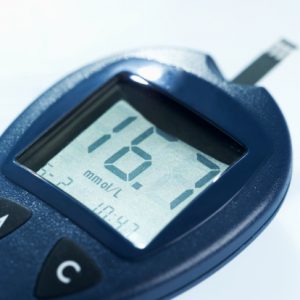
Senior author Dr. Mitsuhiko Noda said, “Our finding[s] uncovered that severe hypoglycemia could indeed lead to lethal arrhythmias, cardiovascular events, and subsequent death.”
When type 2 diabetic patients were compared with type 1 diabetic patients, type 1 diabetics were more likely to have severe hypertension, but both groups were equally as likely to have QT prolongation and hypokalemia.
The researchers conducted the study, “because cardiovascular disease, possibly caused by severe hypoglycemia, may be the cause of excessive mortality observed among diabetic patients in the intervention arm of the recent large-scale trial [Action to Control Cardiovascular Risk in Diabetes] ACCORD,” explained Dr. Noda. He added, “We tried to search [for] the link between hypoglycemia and cardiovascular disease. We also tried to detect the difference in pathophysiologic effects of hypoglycemia between type 1 and type 2 diabetic patients.”
The researchers conducted their research on 414 cases of diabetes and severe hypoglycemia in patients who visited emergency rooms between 2006 and 2012. Patients with type 2 diabetes generally were older, and type 1 diabetics were more likely to have a history of cardiovascular disease. Patients’ vital signs and ECG tests were reviewed by the researchers.
A fair amount of type 2 diabetes patients had hypothermia, which can contribute to arrhythmia, and few of them were diagnosed with a new cardiovascular disease. None of the type 1 diabetes patients were diagnosed with a new cardiovascular disease.
The researchers explained some of the differences seen between the two types of diabetes along with hypoglycemia, noting, “Type 1 diabetic patients typically have fewer comorbidities (such as hypertension and dyslipidemia) and have a weaker counter-regulatory response to hypoglycemia . . . [as a result of] frequent episodes of hypoglycemia.”
Hypoglycemia, cardiac arrhythmia linked in patients with type 2 diabetes
Previous research has also found a link between hypoglycemia and cardiac arrhythmia in type 2 diabetes patients. Senior author Dr. Simon Heller said, “We found that hypoglycemia was fairly common, and that nocturnal episodes in particular were generally marked by a pattern whereby glucose levels dropped to low levels for some hours during which patients slept.”
Heller added, “These periods of hypoglycemia were associated with a high risk of marked slow heart rates [bradycardia] accompanied by [abnormal] beats. We have therefore identified a mechanism which might contribute to increased mortality in individuals with type 2 diabetes and high cardiovascular risk during intensive insulin therapy.”
In diabetes, low blood sugar is commonly found, even though diabetes is known to raise blood sugar to dangerous levels. Low blood sugar can result from the very same medication that is intended to help prevent high blood sugar. In order to combat low blood sugar, the body requires insulin.
“Your body needs fuel to survive and run properly. During hypoglycemia, the body is low on energy. When hypoglycemia is more severe, the brain [which runs on sugar] can get confused and stop functioning. If the blood sugar gets low enough, hypoglycemia can be fatal,” added Dr. Simon Fisher, associate professor and coauthor of an accompanying editorial to the study.
In the small-scale study, 25 patients with type 2 diabetes were included, with an average age of 64. They were all treated with insulin for at least four years.
The participants wore a glucose monitor for five days, along with a 12-lead Holter monitor for the heart.
When blood sugar was low at night, it increased the risk of low heart rate up to eight times in comparison to when it was normal. Slow heart rate wasn’t seen during the day as it was seen at night. In fact, majority of heart problems were seen at night as opposed to during the day.
Fisher concluded, “This study noted that spontaneous insulin-induced episodes of hypoglycemia were associated with asymptomatic mild heart arrhythmias. We have performed similar studies in animals and noted similar arrhythmias during insulin-induced hypoglycemia. Nocturnal hypoglycemia is a major problem. People are less likely to wake up and treat their hypoglycemia at night. They’re less likely to appreciate the normal warning symptoms of hypoglycemia because the entire sympathetic response is relatively blunted at night.”
Hypoglycemia risk in critical illness
All the combined research reveals that hypoglycemia can complicate illness and contribute to worsened health outcomes. The moment you begin to experience symptoms of hypoglycemia you should seek medical attention immediately. Furthermore, if you’re diabetic, ensure you are checking your blood sugar often and that it does not dip to low.
Related Reading:
Type 2 diabetes risk increases with prolonged sitting
Even if you exercise, the risk of type 2 diabetes is still high if you sit for prolonged periods, according to latest findings. For every additional hour sitting – whether at work or for relaxation – the risk of type 2 diabetes increases by 22 percent. Continue reading…
CDC urges to check your risk for diabetes
The Centers for Disease Control and Prevention (CDC) urges individuals to check their risk for diabetes, as 86 million Americans are prediabetic. Knowing your risks and reducing them can spare you a diagnosis of prediabetes. Continue reading…
Sources:
http://www.medscape.com/viewarticle/809976
http://www.diabetes.org/newsroom/press-releases/2014/the-link-between-hypoglycemia.html
http://consumer.healthday.com/diabetes-information-10/blood-glucose-monitor-news-69/low-blood-sugar-may-affect-heartbeat-in-people-with-diabetes-687042.html
http://care.diabetesjournals.org/content/34/Supplement_2/S132.full